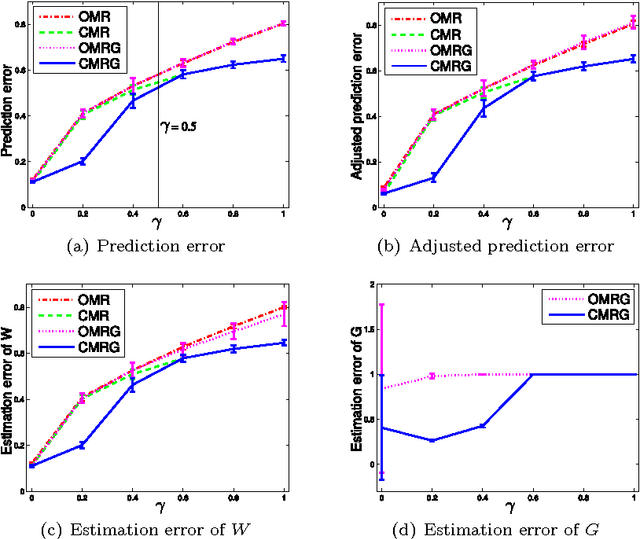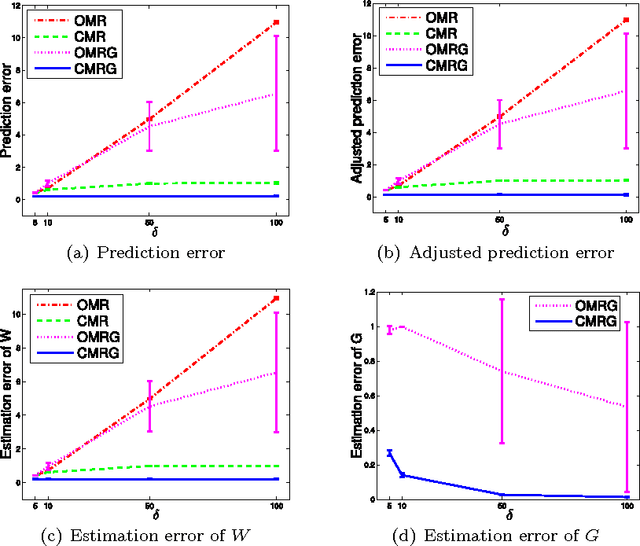Multivariate Regression with Grossly Corrupted Observations: A Robust Approach and its Applications
Paper and Code
Jan 11, 2017



This paper studies the problem of multivariate linear regression where a portion of the observations is grossly corrupted or is missing, and the magnitudes and locations of such occurrences are unknown in priori. To deal with this problem, we propose a new approach by explicitly consider the error source as well as its sparseness nature. An interesting property of our approach lies in its ability of allowing individual regression output elements or tasks to possess their unique noise levels. Moreover, despite working with a non-smooth optimization problem, our approach still guarantees to converge to its optimal solution. Experiments on synthetic data demonstrate the competitiveness of our approach compared with existing multivariate regression models. In addition, empirically our approach has been validated with very promising results on two exemplar real-world applications: The first concerns the prediction of \textit{Big-Five} personality based on user behaviors at social network sites (SNSs), while the second is 3D human hand pose estimation from depth images. The implementation of our approach and comparison methods as well as the involved datasets are made publicly available in support of the open-source and reproducible research initiatives.
 Add to Chrome
Add to Chrome Add to Firefox
Add to Firefox Add to Edge
Add to Edge